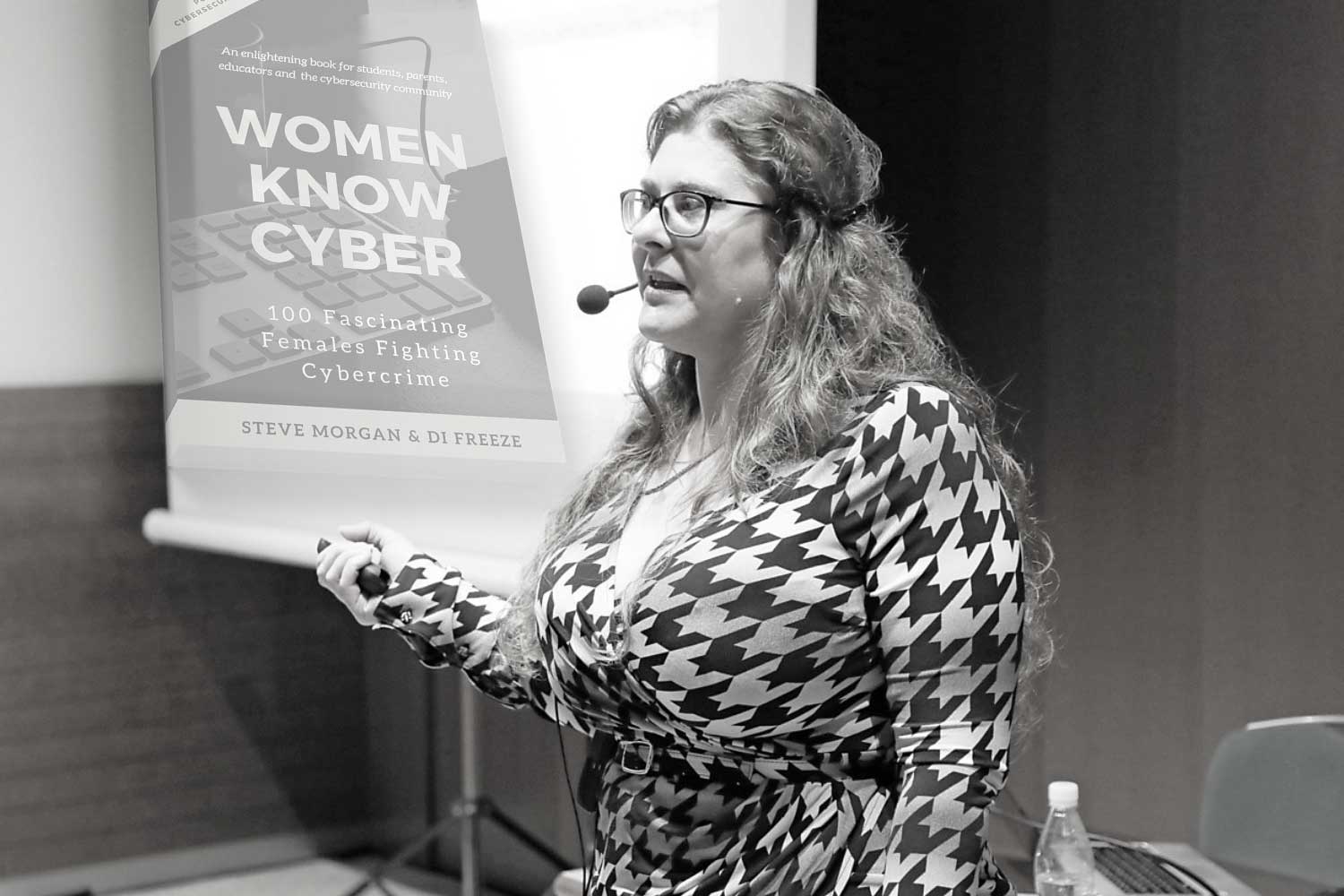
11 Jul How A 10-Year-Old War Dialer Became A Top Cybersecurity Expert
Too much curiosity ultimately led to a rewarding career for Chris Kubecka
 – Di Freeze, Managing Editor
– Di Freeze, Managing Editor
Northport, N.Y. – Jul. 11, 2019
Chris Kubecka, one of the women featured in the book, “Women Know Cyber: 100 Fascinating Females Fighting Cybercrime,” by Steve Morgan and me, is “a cybercrime fighter and cyberwar strategist.” But she wasn’t always on the right side of the fight against cybercrime.
Now an advisor and subject matter expert to governments and industries, Kubecka says her computer obsession began with her mother. “She was a single mom. She started as a data operator changing hard drive platters on night shift,” she said. “There was no money for a babysitter, so I joined her at work.”
Her mom was quickly promoted to robotics assembly manufacturing programmer and then moved up as an expert, speaker, and trainer. “She lectured on robotics and industrial controls system programming,” she said.
Her mother’s job enabled Kubecka to learn basic computer skills by the age of 6, and she fell in love with programming while sitting in front of a green screen. “I was addicted completely to technology at that point,” she said.
Her computer skills would get her in trouble at the age of 10. Her school had a computer lab, and she started “war dialing with an old-fashioned modem — the ones you put the phone on.” She discovered some weak systems, which turned out to be the Department of Justice.
After about two weeks of access, she got caught. “This was not cool,” she said. That’s because her family had connections with NASA, the NSA, the CIA, and a presidential appointment at the VOA. “I was restricted from using a computer until the age of 18,” she said.
With no college money, the military was a good option, so Kubecka took the ASVAB (Armed Services Vocational Aptitude Battery). “I missed one question,” she said. “They granted me a military moral waiver and the USAF took me in.”
Kubecka served in the U.S. Air Force as a C5 loadmaster, while flying combat and humanitarian missions. “I set up the first file server system for our flying squadron, installed antivirus and so forth,” she said.
After being injured in the line of duty, she took a role in USAF Space Command, in front of a computer full-time with Space Operations. Her role came under the heading of “Plans and Implementations of Telecommunications and CCS Systems.”
After the military, Kubecka became a disaster recover consultant for the Blair Technology Corporation and then took an internship at the Department of Veteran Affairs. She interned as a vascular surgery technician while pursuing pre-medical studies as well as interning as a database programmer.
Still fascinated by computers, she later became a network administrator for HSA Engineers & Scientists before becoming senior network operations analyst for Signature Consultants, and the senior client security advisor for flagship clients Lloyds TSB and Danone for Unisys. In that position, she detected and helped halt a second wave of cyberwar attacks against South Korea in July 2009.
She also served as the IT security manager for Achmea. In 2012, when Saudi Aramco, the state-owned national oil company of Saudi Arabia, was hit with the “Shamoon logic bomb,” a destructive virus that affected 35,000 computers and forced Aramco to take its network offline, Kubecka was brought in to set up a security operation.
She worked with Aramco for two years before founding HypaSec, based in the Netherlands. HypaSec offers expert advice, incident response management, lecturing, training in IT and ICS security, penetration testing and writing services in security.
Kubecka has chaired and presented at leading industry conferences and has authored several books regarding computer science and penetration testing, including “Hack the World with OSINT.”
To learn about more women fighting cybercrime, pick up a copy of “Women Know Cyber: 100 Fascinating Females Fighting Cybercrime.”
– Di Freeze is Managing Editor at Cybersecurity Ventures.



